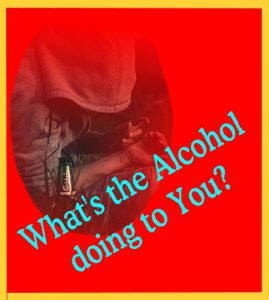
‘It’s amazing how one little conversation can change things forever.‘
Conversation is the ‘exchange of thoughts through informal talking‘, together, but there is also the other quote, ‘talking to oneself‘.
Speaking about ‘civic engagement‘ refers to talking and working as a group (use of collective power) to bring about change in public issues of concern.
Either way, it’s to examine or share, a topic of interest. Discussing a specific topic can lead to learning various outcomes and who’s best for what task.
Discussing Civics with your Family
Meeting at the table has been a favored gathering point and event for family and friends. Conversation can be considered the ‘toast of the party’! Would you agree?
Civics refers to the duties, rights and privileges of citizens. Parents can introduce this topic during evening dinner meals, and discuss with their children, just what is and what isn’t allowed since society has it’s norms, rules and laws, along with the consequences.
Children can learn from these discussions and hopefully, avoid glamorizing or considering, criminal behaviors or acts. It’s preferable to begin with asking questions, to measure the amount of knowledge and starting point versus entering preach or lecture mode.
Learning gets Shared
Parents take on many roles for their children, and one is, as a teacher. Helping children understand their place in society, will help towards developing the child’s personal and intellectual growth.
In turn, they will be able to pass on these lessons learned at home, to their friends. They will also be learning the beginning steps of civic ‘engagement‘. The ability to discuss, as individuals yet act as a collective group, to achieve or address, public concerns.
Parent and child conversations can help develop a child’s intellect and learning to use reason, gain understanding and separate, real from the imaginary, and ground the ego. After all, society works together to uphold their norms, rules, regulations and laws, to function as a nation, and remain in a state of peace, with each other. A child learning this knowledge and skills can develop into a socially well -adjusted adult.
Short on Energy or Time
A few parents may find, they do not spend or make for, any quality time with their children other than giving directions and reinforcing rules. This can be detrimental for both parent and child along with making for a bad day.
Socially maladjusted children can usually be observed as those with behaviors and values that conflict with society norms. Abuse and neglect can have lifelong consequences on a child, which can easily be observed by trained education, and mental health professionals. Local laws may require any suspicions of child abuse and neglect, to be reported.
The idea of teaching a child about rights and responsibilities of adults, and children may be daunting for parents. This can be resolved by taking time, to research the subject online, or visiting the library.
Importance of Open minds, Patience and a Safe environment
A conversation with our child is a two or more person orchestra vs a one-sided conversation, allow for all to contribute. It takes skill to shape and guide a conversation to create meaning, learning and thinking. We can’t forget a dose of humor can lighten a conversation and add fun.
A meaningful conversation in a family can take place when trust and safety exists. Let your next dinner conversation be a learning experience for your children. There are many topics to choose but one should first start with their place in society. One may be influencing a future leader.
Learning in Motion
Extra Learning Resources
Civic Responsibility – A Paper
National Traffic Safety Institute
I hope you found this article informative. Please feel free to leave your comments and share with your friends and family . Use my ‘Ask a Question‘ form if you have a request on a topic of interest, a guest post, or to say Hello! I hope you visit again.
AIC| An informal Cornr all rights reserved. Ginsense creates and posts articles online about business development, micro business, health, science, technology and advocates on social issues.



